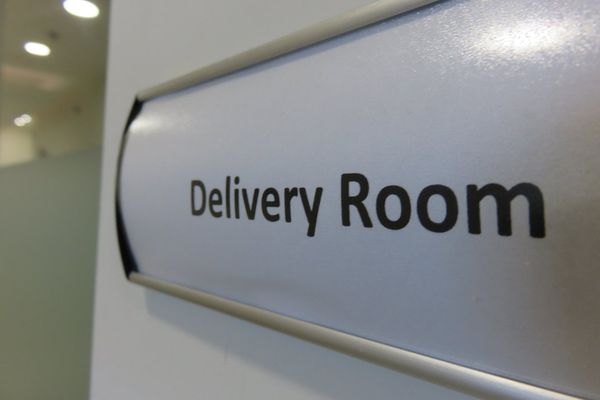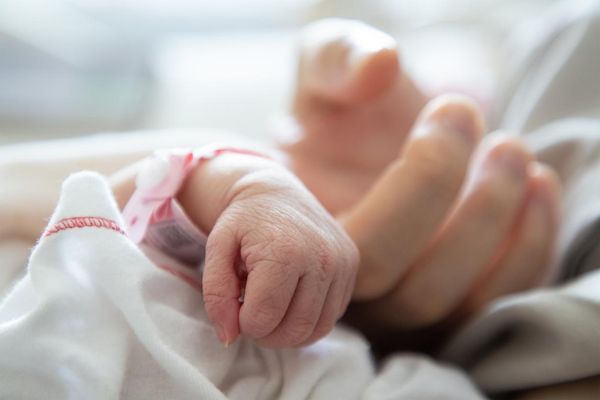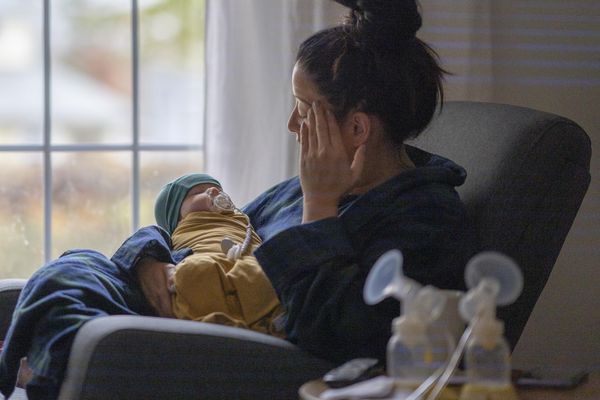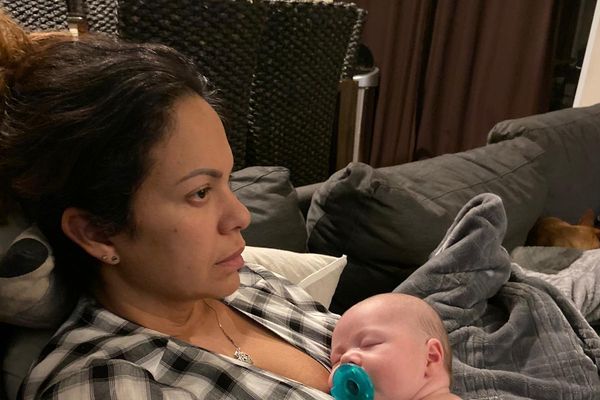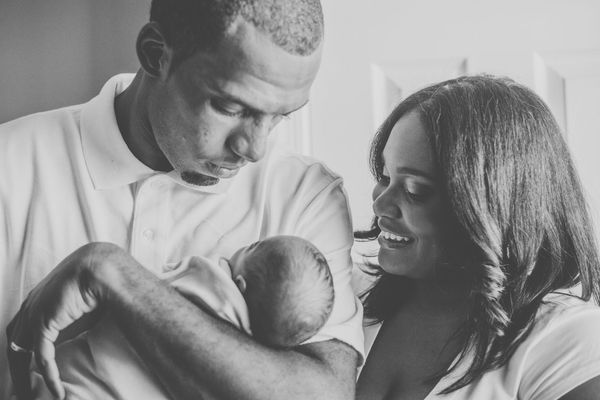Ashley Abeles is a #teamHealthyWomen Contributor and this post is part of HealthyWomen's Real Women, Real Stories series.
I'd like to share a story with you.
I have a friend who broke her spine. She was suffering immensely and working with a team of doctors and other professionals to heal. The pain led her to cry every day, often to the point of vomiting. My friend was unable to eat and lost a significant amount of weight. She was unable to complete many basic tasks. Every day, she was afraid that she might never become well again. Some evenings, she thought it might be better if she did not wake up in the morning.
When she shared her pain with a friend, her friend told her that she understood. "I totally get it," said her friend, "I broke my finger once and it was awful. I didn't need doctors or painkillers; neither do you. I kept a positive attitude and it healed on its own. You just need some fresh air, a manicure, and a better mindset."
Confession: this is not a true story. I'm assuming you probably guessed that based on its absurdity. However, parts of it describe my own experience with Postpartum Anxiety and Depression.
Just as broken bones are not created equal, neither are pain, suffering, or mental illness.
Most of us would never compare a broken finger to a broken spine. Most of us would never tell someone who is suffering so greatly to wait it out and refuse medication or the support of professionals. We would never expect an injury so serious, so life-threatening, to heal itself with nothing but positive thinking.
Unfortunately, this is often the treatment people receive when suffering from
mental health conditions. When I was struggling with Postpartum Anxiety and Depression, I too received these types of comments.
Each time, I felt more alone.
Each time, I felt more broken.
Each time, I lost a little bit of hope.
These responses place blame on the sufferer, intentionally or not, and are extremely dangerous. Someone experiencing mental illness should not be encouraged to refuse treatment any more than someone with a broken spine should be. Both can be life-threatening.
"What did help was receiving appropriate, specified treatment from experienced professionals."
Because these comments often come from a place of misunderstanding and misinformation, I would like to offer some clarity.
Just as broken bones are not created equal, neither are pain, suffering, or mental illness. Two people may have the same diagnosis but have very different experiences and need very different treatment plans. The severity and presentation of your condition may be different from that of another person. What worked for you may not be what works for someone else. Equating your experience with someone else's may be as insensitive and inaccurate as equating a broken finger to a broken spine.
Perinatal Mood and Anxiety Disorders (PMADs) are not enjoyable. They are awful. In my case, Postpartum Anxiety and Depression involved multiple, intense daily panic attacks, vomiting, inability to eat or drink, difficulty sleeping, frequent crying, anger, intrusive thoughts, belief that my loved ones would be better off without me, difficulty concentrating, belief that I was a horrible person and mother, feelings of inadequacy and failure, fear that the fear would never end, and sometimes, a desire to fall asleep and not wake up. Simply speaking, it was the most difficult period of my life.
If I could have willed myself out of it, I would have. I tried to recover without treatment but my condition only worsened. I tried to have a positive attitude, to exercise, to get fresh air, to meditate, and to complete many of the other activities suggested to me. Many days, the severe anxiety and depression prevented me from doing so, other days nothing helped. What did help was getting appropriate, specified treatment from experienced professionals.
"I needed love, not tough love."
When I was struggling, I did not need to be told that a manicure and yoga class would heal me (I tried; they didn't). I also did not need my experience to be minimized, sugar-coated, or brushed over. This is what I needed to hear:
- How are you–really?
- You are not alone.
- This is not your fault.
- This is more common than you think.
- This is not a reflection of your character.
- You are strong.
- It's okay to not feel okay sometimes.
- I am here for you.
- I'm not going anywhere.
- There is nowhere I would rather be.
- I love you.
- With treatment, you will get better.
- I will be here every step of the way.
- You can be honest with me.
- Let me help you find treatment.
- Getting help is a sign of strength, not weakness.
- You have no reason to feel ashamed.
- You will not feel this way forever.
- You are not the exception to recovery.
- Let me take you to people who can help.
I needed non-judgmental support. I needed love; not tough love. I needed people to take my pain seriously. I needed someone to hold my hand and show me the way out of the darkness.
I needed TREATMENT.
My treatment included a support group, therapy, and medication, among other interventions. I am not embarrassed by that, for there is nothing shameful in needing help to heal. Doing the work to recover is a sign of strength, not weakness.
Hope and positivity did not treat my PMAD. Instead, treatment restored my hope and positivity.
If you're also struggling with PMAD, you are not alone. This is not your fault. This is more common than you think. This is not a reflection of your character. You are strong and with treatment, you will get better.
A version of this post originally appeared on Ashley Abeles' Blog, Muffin Man's Mama. It has been reprinted with permission.
- Feeling Blue? Learn the Difference Between Perinatal Depression and "Baby Blues" ›
- Overcoming the Fear of Having Another Baby After Postpartum Depression ›
- Battling Postpartum Depression Feels Different When You’re Black ›
- Living With Postpartum Depression and Anxiety Isn't the End ... ›
- Drowning in New Motherhood: My Journey Through Postpartum Depression and Anxiety ›


